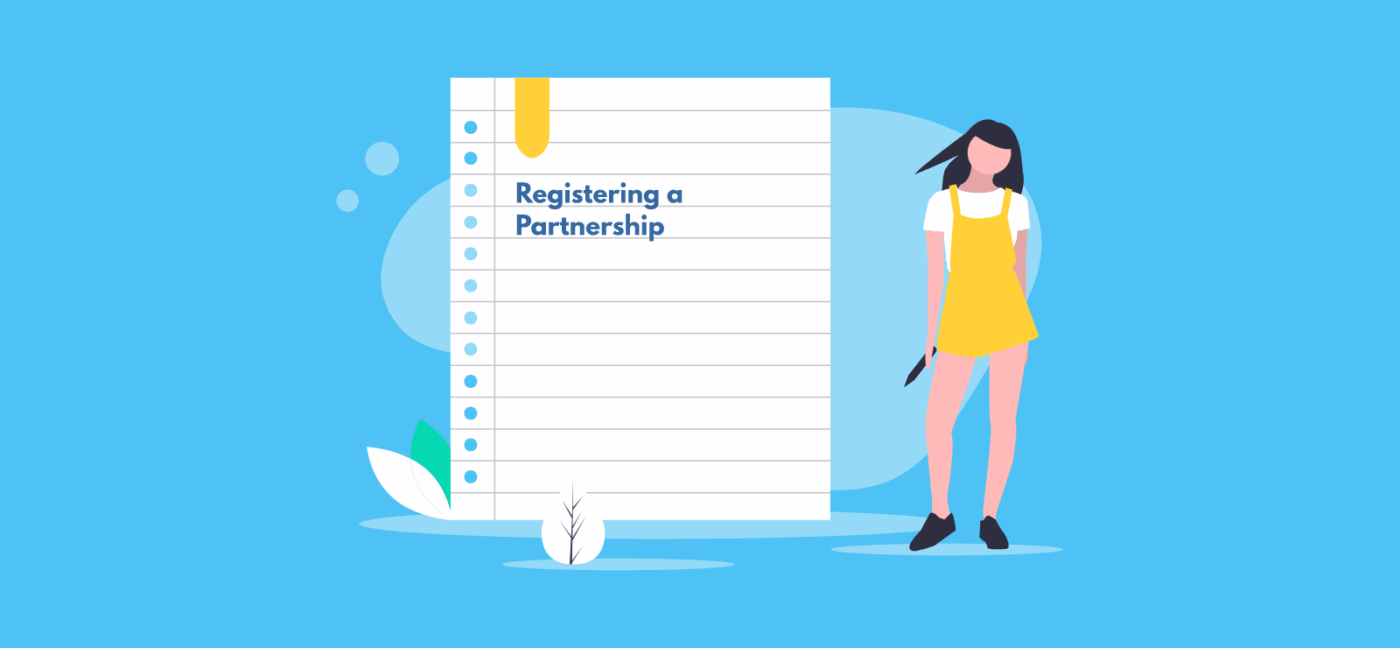

How Do I Register A Business Partnership?
Like all business structures, general partnerships need to register with HMRC. Partnerships are a bit different to some businesses though, because as well as registering the partnership itself as an entity, each partner must also register separately.
What is a business partnership?
A partnership is a type of business structure which allows a group of people and organisations to work together whilst sharing all of the responsibility. Partners can be individuals, companies, other partnerships, or even a combination. In that respect, setting up a partnership can be particularly useful for a group of businesses which want to collaborate on something.
Unlike a Joint Venture agreement which doesn’t need to register as an entity, a partnership does.
How do I set up a business partnership?
Anyone can set up a partnership, and it’s fairly straightforward to do. The partnership must appoint a ‘nominated partner’ who is responsible for the partnership’s record keeping, as well as any paperwork or forms. They’ll also be responsible for registering the partnership with HMRC.
Registering a partnership with HMRC
You can register a partnership online using a Government Gateway ID to sign in to the online service. If you already have one for a different business, it’s usually a good idea to create a separate Gateway account for the partnership to avoid any mix-ups! If you can’t register online, you can use an SA400 form to register through the post instead.
You’ll need to confirm:
- The partnership’s name (either your own names or one you choose)
- The nominated partner
- The nature of the business
- A business address
- The details of each partner
When do I need to register the partnership?
To avoid any penalties, the nominated partner must register the partnership before 5th October in the business’s second tax year.
For example
The partnership started in February 2025, so its first tax year was 2024/25 (6th April 2024 - 5th April 2025).
This means its second tax year is 2025/26 (6th April 2025 - 5th April 2026), so the partnership must register with HMRC before 5th October 2025.
Any individual partners must also register by the same deadline.
Do the partners register separately in a partnership?
Yes. As well as registering the partnership itself, each partner must register with HMRC too. Even if they’re already somewhere on HMRC’s books, they’ll need to confirm they’re also now a partner in this particular partnership. They’ll each be responsible for their own tax returns and paying their own tax and National Insurance.
- Individual partners can register online or with an SA401 form
- Partners which are another partnership, company, or trust, must register using an SA402 form
What happens after I register a business partnership?
You’ll normally receive a Unique Taxpayer Reference (UTR) number from HMRC within 10 working days.
The UTR number identifies the partnership’s tax records in its own right and will be different to the UTR for any partners, so keep it safe! The nominated partner (or your accountant if you use one) will need this to submit tax returns for the partnership.
Paying tax in a partnership
Even though partnerships must submit SA800 tax returns as an entity, they don’t actually pay tax on the profits they make. Instead, each partner will pay tax based on their share of the profits.
Do I need a partnership agreement?
It’s not mandatory, but it’s a very good idea! The partners in the partnership can draw up a legally binding document called a deed, which sets out the rights, responsibilities, and duties of each partner. This can include how the partnership should be run, as well as how to share any profits.
What are the partners responsible for?
All of the partners have a responsibility to make sure the partnership meets its mandatory reporting requirements (such as tax returns) on time, even if they’re not the nominated partner.
For everything else, partners normally share the running of the business, together with any profits or losses made by the partnership. However, this may depend on the type of partner, and whether they have drawn up a ‘deed of partnership’.
- General partners usually share all responsibilities of a partnership business, including investment in the business, management, and profits and losses, but their personal assets may be at risk if anything goes wrong.
- Partners who are limited are only responsible for debt which is equal to the amount of their initial investment or less
- A sleeping partner will make an investment into the business and will usually take a share of any profits, but doesn’t have a say in the running of the partnership.
Learn more about our online accounting services for partnerships. Call the team on 020 3355 4047, or get an instant quote online.
Want to learn more?
Subscribe to our newsletter to get accounting tips like this right to your inbox

Read more posts...

How Do Footballers Pay Tax?
24th February 2026We all know top-flight footballers do alright. But how does tax work for professional footballers? Is it treated as self-employed income, or…
Read More
The Accountancy Partnership – Our Positive Reviews
16th February 2026We’re proud of our customers’ reviews here at The Accountancy Partnership The reviews we receive from our customers show how hard we…
Read More
Maternity Pay for Self-Employed People
15th February 2026As a self-employed person you might be eligible to get Maternity Allowance payments for up to 39 weeks. It’s different to Statutory…
Read MoreConfirm Transactions
The number of monthly transactions you have entered based on your turnover seem high. A transaction is one bookkeeping entry such as a sale, purchase, payment or receipt. Are you sure this is correct?
Please contact our sales team if you’re unsure
VAT Returns
It is unlikely you will need this service, unless you are voluntarily registered for VAT.
Are you sure this is correct?
Call us on 020 3355 4047 if you’re not sure.
MTD IT Quarterly Updates
Your final, end of year MTD Income Tax submission is included in your fee, without this add-on service.
We would recommend you submit the quarterly updates yourself using Pandle or alternative bookkeeping software.
However, if you would prefer us to submit these quarterly updates for you, there is an additional fee of £35.00 per month.
Call us on 020 3355 4047 if you’re not sure.
Bookkeeping
You will receive our bookkeeping software Pandle for free, as part of your package.
You can use this to complete your own bookkeeping, or we can provide a quote to complete your bookkeeping for you.
Please select and option below:
Call us on 020 3355 4047 if you’re not sure.

